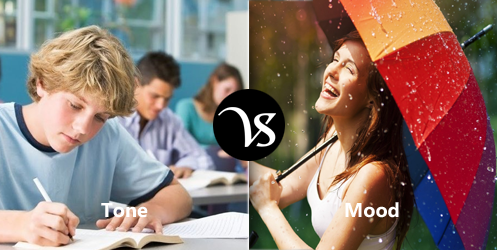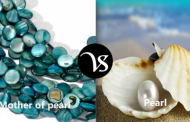 Tone:
Tone:
Tone is the feeling perceived by the reader. When we feel happy or sad reading the piece then it is tone. Seriousness, bitterness, joyful, angry, ironic, amusing, humorous etc. are described as tone. The author’s tone could be known by the words he uses.
Mood:
A mood is an emotional state of mind which can be positive and negative. Mood differs according to the personality of the person. The one who is optimistic often have good mood whereas the one who is pessimistic often have bad mood.
Differences:
| Basis | Tone | Mood |
|---|---|---|
| Definition (www.oxforddictionaries.com) |
A modulation of the voice expressing a particular feeling or mood. | A temporary state of mind or feeling. |
| Synonyms | Inflection, strength, accent, timbre and emphasis | Character, personality, tendency, wish, feeling and emotion |
| Antonyms | Unimportance | Hate, physicality, dislike, hatred, gladness |
| Types | Its types are:
|
The types of mood are:
|
| History | The historical origin of tone is called tonogenesis which was coined by James Matisoff. Tone is frequently a real rather than a genealogical feature. | The term ‘mood’ in its scientific usage refers to relatively enduring affective states that arise when negative or positive experience in one context or time period alters the individual’s threshold for responding to potentially negative or positive events in subsequent contexts or time periods. |
| Word origin | It was originated from the Middle English: from Old French ton, from Latin tonus, from Greek tonos ‘tension, tone’, from teinein ‘to stretch’. | It was originated from the Old English mōd, of Germanic origin; related to Dutch moed and German Mut. |
| Pronunciation |
|
|
| Created | The mood of a piece of literature is the feeling or atmosphere created by the work, or, said slightly differently, how the work makes the reader feel. | Mood is produced most effectively through the use of setting, theme, voice and tone. |
| Example in Sentence |
|
|





